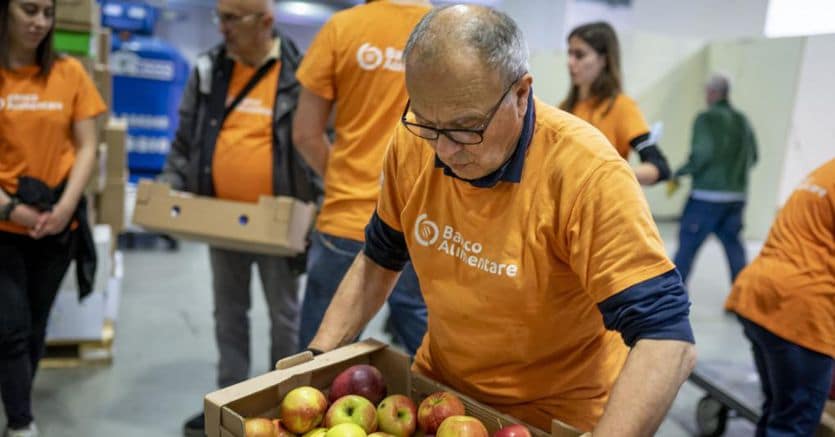The risks of the flare-up of inflation
This year, concludes Blangiardo, poverty has also had to deal with the sudden flare-up of inflation, triggered by the energy crisis: “Inflation – he explains – has further affected the poorest families because the increase in the cost of essential goods has a greater weight in their shopping cart: in the first nine months of the year the inflation differential between the fifth of the poorest households and the fifth of the wealthiest reached four percentage points, it was only 0.8% at the end 2021 “. In order to respond to this growing need, the action of the institutions cannot ignore the synergy with other actors.
The Directors General of the Ministries of Agriculture and Food Sovereignty and of Labor and Social Policies who manage the Fund for European Aid to the Poor (Fead) and the National Fund (Fn) also participate in the event: in 2021 the quantity of food from these channels contributed 56% of the total food distributed by Banco Alimentare. However, given the growing need, it is necessary to intensify efforts, as reiterated: Luigi Polizzi, Director General of International and EU Policies of the Ministry of Agriculture and Food Sovereignty: “In this particular historical moment in which the difficulties in large sections of the our society, forcing numerous families to turn to canteens with extreme dignity, the Ministry is committed to identifying more and more resources as a tool to help alleviate suffering. Obviously, to pursue this objective, maximum collaboration and cooperation between the main players in the process is essential ».
This is echoed by Paolo Onelli, Director General for Poverty and Social Policies of the Ministry of Labor and Social Policies, who states that “what we are dealing with today is a very topical issue for some years now and we can therefore face it with the strength of the lessons learned and the desire to improve. our system of food aid to the most deprived people. The fight against waste, the circular economy and the fight against food poverty have a value in themselves but without the capillary dimension of the reality of food aid to the poor it would make no sense to speak of social solidarity. In my opinion, proximity relationships are in fact the most precious asset. For this reason, we believe that it is technically useful that at the intermediate level of the food aid chain there are dedicated figures who can act as a link between the activity of volunteers and that of local public services. This with the aim of improving and integrating the care of people in need ».
«Extreme poverty – adds Onelli – is growing and is multidimensional, there is still a long way to go and it is necessary to make efficient use of the financial resources in the area which have become huge over the years. The new National Inclusion and Fight against Poverty Program has in fact a total budget of about 4 billion euros (of which a part for food aid) to which the resources dedicated to extreme poverty by the NRP must be added. We must then systematically find a way to meet and reflect in order to compare experiences, exchange points of view and face further emergencies that we cannot exclude for the future ».
Take action against food waste
The importance of implementing increasingly effective system actions in the fight against food waste is also underlined by Federalimentare and Federdistribuzione. «We are well aware that as a food industry we not only have an economic responsibility but also (and in equal measure) an ethical responsibility – declares Ivano Vacondio, President of Federalimentare – because we are dealing with people’s basic needs. For this reason, we understand the importance of correctly and adequately managing the problem of food waste and surpluses. Although in fact our industry represents a virtuous example because it affects only 0.4% of the food surpluses produced along the entire supply chain, the problem in Italy is there and it is real: there are over 5 and a half million tons of food surplus produced by the food supply chain, of which only 9% are recovered. This means that just over 5 million tons of food is destined for waste, equivalent to about 15% of annual food consumption in our country. Dramatic numbers in the face of equally worrying data: 5 and a half million people in Italy (according to the Caritas Report) live in absolute poverty, equal to 7.5% of the population. The food industry, as well as the entire supply chain, cannot stand by and the collaboration with the Food Bank goes precisely in the direction of taking a position. With the idea that there is no sustainability at a single speed (i.e. the environmental one) but that all three pillars of sustainability should be valued and ‘weighed’, therefore also the economic and social one, Federalimentare aims to work more and more and always better with the aim of progressively and significantly increasing the volumes of donation of products of the food & beverage industry and, at the same time, promoting training opportunities for our companies in order to have useful updates on the operating procedures to activate donation procedures “.
